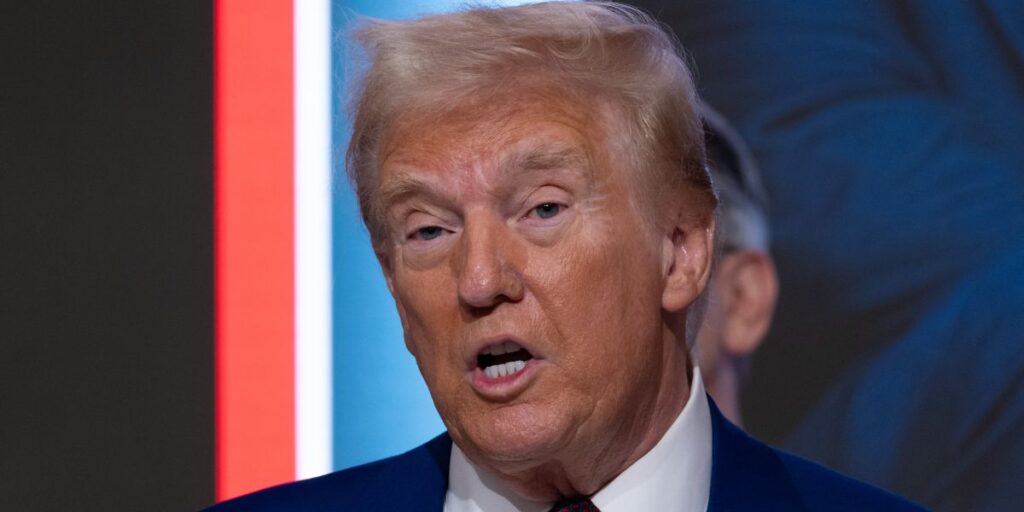In the aftermath of a rally led by Donald Trump at Madison Square Garden, an uproar ignited due to racist jokes made by comedians, notably Tony Hinchcliffe, who infamously labeled Puerto Rico a “floating island of garbage.” Trump’s team, particularly his co-campaign manager Chris LaCivita, reported that the jokes left Trump visibly “aggravated” and classified the incident as an “unforced error.” Chief pollster Tony Fabrizio acknowledged the dissatisfaction within the camp over the controversy, indicating that they had intended to release a brief statement and move past the incident. However, the media reaction was more intense than expected, overshadowing Trump’s rally and throwing his campaign into a state of confusion.
Three days following the rally, Joe Biden’s comments about Trump supporters shifted the focus of the news cycle. While addressing the fallout of Hinchcliffe’s jokes, Biden appeared to deride the supporters by saying, “The only garbage I see floating out there is his supporters,” which reignited the media frenzy but redirected it away from Trump’s rally. This statement served not only to address the racist jokes but inadvertently became a shield for Trump, helping to deflect criticism back toward Biden’s remarks. LaCivita of the Trump campaign indicated that Biden’s comment was effectively a lifeline that allowed the Trump campaign to escape the backlash resulting from the rally’s offensive humor.
Amid the controversy, the White House engaged in damage control, attempting to clarify that Biden’s comments were specifically in reference to Hinchcliffe’s words rather than a blanket condemnation of Trump’s supporters. President Biden’s team reportedly took measures to amend the official transcript of his remarks by adding an apostrophe to support their argument that he was not attacking all Trump supporters. Nevertheless, the attempt to mitigate the damage may have further complicated the narrative, as it was perceived that Biden’s effort was inadequate to distance himself from the backlash.
While this controversy played out, it also provoked a reaction from Kamala Harris, whose closing campaign message appeared to be undermined by Biden’s remarks. The distinct timing of Biden’s comment effectively overshadowed her push for unity and inclusion, introducing a divisive note at a moment when the campaign aimed for cohesion. LaCivita suggesting that Biden had “saved” the news cycle underscores the tactical nature of political discourse where statements are often strategically wielded to navigate controversies.
The dynamic between the two campaigns illustrates the complex interplay of media narratives in political campaigns, where a single comment can shift the focus from one candidate’s blunders to another’s gaffes. The Trump campaign’s initial struggle to control the media narrative surrounding the offensive jokes was quickly eclipsed by Biden’s sharp rhetoric, which led to a considerable shift in public attention. This situation also highlights the precarious nature of campaign strategies, where planned messages and intended narratives can be upended by unscripted moments or remarks.
As the election approached, both campaigns remained vigilant in addressing the fallout from these exchanges. The Trump campaign, having escaped the immediate consequences of the Madison Square Garden incident and benefiting from tightened media focus on Biden, reoriented their narrative. Conversely, Joe Biden, while attempting to respond to the offensive jokes, found himself in a challenging position where his attempt to reclaim the narrative inadvertently became a focal point of contention. This cyclical nature of political communications and the influence of public discourse demonstrated how quickly the tides can shift in the arena of electoral politics, highlighting the complexities candidates face as they navigate public perceptions and media landscapes.

